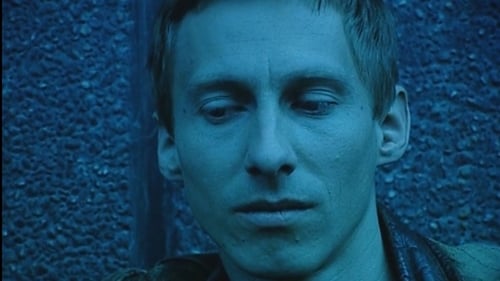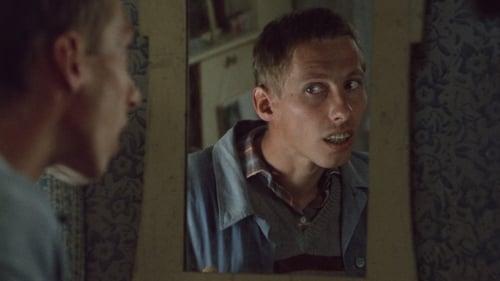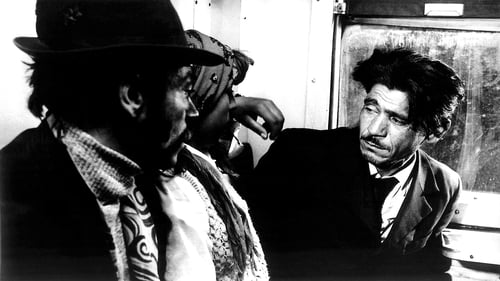János Bán
Nascimento : 1955-10-04, Győr, Hungary

Józsi, lehallgató

Ernõ

Béla

Frici

Farkas
El ángel de Budapest (Angel of Budapest) is a Spanish 2011 television World War II-Holocaust miniseries based on the book "Un español frente al Holocausto" (A Spanish against the Holocaust) written by journalist and radio executive director Diego Carcedo. The plot focuses on Ángel Sanz Briz, a Spanish ambassador in Hungary during World War II who helped to save the lives of thousands of jews from the Holocaust by lodging them in Spanish safe houses in Budapest.

Kosztin
Gabriel Ventuza lives the peaceful life of a herbalist, growing and cultivating medical herbs in Italy. One day he receives an order from his older brother who is just out of prison for one day. Gabriel should go to the remote little town of Bogdanski Dolina in Far-Eastern Europe, the place of their childhood and take out the mortal remains of their father, the late people smuggler, the famous Victor Ventuza. Gabriel leaves his "eventless" life behind and goes to accomplish his mission. He is robbed on the way, his belongings, passport, money and even his clothes are stolen and finds himself in a small closed town surrounded by hills of stinking toxic waste, where strange priests rule and fear keeps people quiet, producing a general atmosphere of insecurity.

ÁVH-s
Some of the most symbolic moments of the 1956 Revolution in Hungary were the tooth-and-nail battles fought by the so-called 'Pest Lads' who dared to defy odds by taking on the panzers of one of the world's superpowers. The story begins on October 23rd, 1956 and ends on November 4th of the same year. Juli is Totya's girlfriend but also loves Gábor. Their love triangle will have to endure the trials and tribulations of these stirring times. A group of boys living in the outskirts of the capital are playing football in abandoned lot when Juli, a ticket inspector, brings news of protests breaking out in the city. Only Gábor accompanies her into town and together they become part of this historical event. At dawn, when the boys too come under fire from Soviet forces, they decide to join in the fight.

Berecz Ede

Bán
At 15 he and his family became victims of state terror. At 16 he became a freedom fighter to participate in the 1956 Revolution against Soviet oppression. At 17 he is betrayed and arrested by the dreaded Secret Police (AVH). Now he has to spend the remainder of his life in a political prison, called Hell's Hallway, to reach the legal age of 18 before his death penalty can be carried out. Peter Mansfeld was 18 when he was unjustly executed by the totalitarian regime of Hungary. Today he is remembered as one of the national heroes of Hungary.

Rezső
The Hungarian version of the "The Seven Samurai" and "The Magnificent Seven".

Béla

Poetic movie about 3 generations of women.

Enikős and Dorkas marriage is unbearable. Hysterical, cruel and humiliating scenes are enacted in front of the childrens eyes, while the childless Barbara is held by her husband, the painter, to be a toy and sometimes a painting screen.

The fates of famous slovak individuals in history bring strong dramatic stories and a witness to the age in which they lived. Tragic and complicated life of the physician Albert Škarvan, who was a friend and admirer of the great russian writer Leo Nikolayevich Tolstoy, is also a noteworthy confrontation of worldview of two individuals in times, whe pacifist ideas sharply colided with the reality

Aljoscha
Lipstick strives to depict the inner conflicts of the protagonist Vesna as subjectively as possible. Vesna, apparently unmoved by the armed conflicts in her homeland Yugoslavia, leads a happy-go-lucky life. A form of denial, the causes of which should be explored. Her visit in Budapest and therefore her compromise with her possibly true, though repressed, identity, evokes a feeling of happiness for a short time. The next morning, reality catches up with her again. She is taken off the train and is forced, since her passport and Austrian visa have both expired, to assume a new identity. Despite the futility of her undertaking, she refuses to make a statement concerning her person while in jail. What remains is the memory of a short-lived feeling of emotional success by delaying the course of events. The suggestion to consider a denial while in a condition of statelessness.


International peace conference, events take place in the last week of 1899. Tragic love story between Vilma, daughter of the Austro-Hungarian envoy/ambassador, and Zoluk of Montenegro.

Hiesztakov

Béla
Hungary's submission for the Academy Award for Best Foreign Language Film in 1990

Officer
Ivan Danko é um policial russo durão que é obrigado a trabalhar ao lado do extrovertido detetive Art Ridzik. A dupla investiga um importante criminoso internacional envolvido com tráfico de drogas que fugiu da Rússia para os Estados Unidos.

Emil

The story of a murder out of jealousy. After his release from prison, the perpetrator tells the story of his marriage and tries to understand the reasons for his actions.

Géza
Tal como Light Physical Injuries, O Fura-paredes explora o machismo compensatório da classe dirigente oficial da Hungria. Filme mais badalado e problemático de Szomjas, conta a triste história de um proletário descontente abrigado num conjunto habitacional monstruosamente deprimente que -ainda menos eficaz do que os heróis da Calvo-Dog Rock- tentam mudar a sua vida. A compra de um berbequim atirandopara trás das costas como o anti-herói de um western spaghetti, ele torna-se empresário, abrindo furos nas paredes de seus vizinhos para que eles possam pendurar espelhos ou quadros. A metáfora é utilizada com o máximo de insinuação aduladora, especialmente quando o perfurador se imiscui com o cabecilha de uma rede de prostituição local, composta principalmente por mulheres em licença de maternidade.

Otík
Otik é um jovem deficiente mental, numa comunidade de aldeia unida. De temperamento doce, Otik trabalha como assistente de camião com Mr. Pavek, seu colega mais velho e vizinho de espírito prático. A família de Pavek cuida de Otik, cujos pais estão mortos. No entanto, os dois colegas de trabalho entram em desacordo devido à incapacidade de Otik para executar até mesmo as tarefas mais simples. Pavek exige que Otik seja transferido para ajudar um outro motorista, que dá-se o caso de ser um homem colérico e desconfiado chamado Turek (Turco em checo). Ao invés de trabalhar com Turek, Otik decide aceitar uma oferta de emprego em Praga, mas descobre que ele não encaixa na vida da cidade. Depois de descobrir que a transferência de Otik para Praga era um truque de um político desonesto para obter um acordo sobre a casa grande herdada por Otik, Pavek concorda em dar a Otik uma segunda oportunidade e recuperá-lo da cidade para retomar o seu trabalho em conjunto.

1894. The mortal remains of Lajos Kossuth are brought home from abroad, the railways are lined with people with their hats in hand, and among them stands the teenager Imre Tányér. 1910. The grown-up Imre undertakes the task to solve the question unsolved since 1848-49, i.e. the transformation of peasant life. He fights for the rights of his class, for justice, for human dignity in a society distorted, backward and built on inequality.

Zoli, a szerelõ
The parents of Kabala (Lucky Charm) and Facsiga (Wooden Top) are divorced. Kabala, an adolescent girl was awarded to the father, while Facsiga, the younger brother was awarded to the mother, but they do not really belong to anyone. The two children want to live together at all costs.

Brigádvezetõ az útépítésen
Balog Mihály, the Gypsy man from Szabolcs works in Budapest. That is where he is notified that his young wife died. Again he behaves differently from his fellow-men in the Koportos Gypsy settlement: he wants to give a beautiful, rich burial ceremony to his wife.

Father
The film deals with the relation of a father and his son. They are carrying a huge mirror to the fifth floor. To achieve their goal they must work as a team. On the way, their family life is also revealed.














